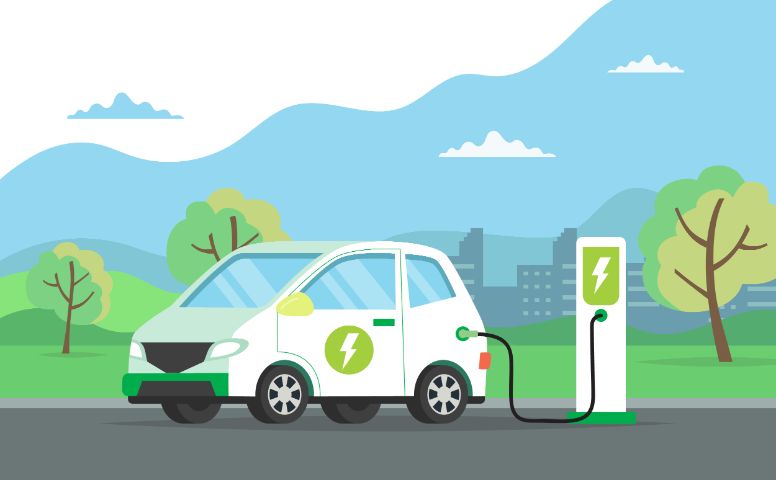Are Hybrid Cars Worth the Hype? Find Out
Are Hybrid Cars Worth the Hype? Find Out

While we know that traditional internal combustion engine (ICE) vehicles are no longer environmentally viable, they are the most cost-effective solution to personal mobility that we have currently. Electric vehicles are gaining ground and becoming more affordable every year, but they’re still out of reach for the common man. Add to that the cost of maintenance and car insurance policyexpenses- it becomes a luxury only the financiallyprivileged can enjoy at present.
This is where hybrid vehicles come in, bridging the gap between ICE vehicles and electric vehicles (EVs), offering both technologies at a relatively affordable price.
What is a hybrid vehicle?
Any vehicle that uses two distinct types of power is a hybrid vehicle. Diesel-electric trains are a common example of a hybrid vehicle. The technology has existed since early 1900s, but has only become cost-effective to manufacture in cars, now.
How does it work?
• Regenerative braking
Hybrid vehicles can be charged with a plug-in system, or by the ICE, or through regenerative braking. Most of the hybrids in India feature the regenerative braking technology, which charges the battery when you press the brakes.
• Dual power
Different manufacturers have different practices, but hybrid cars can run on either electricity from the batteries, or fuel in the ICE at any given time, or both. Usually, hybrid cars run on electricity at lower speeds, while the combustion engine kicks in at higher speeds. The electric motor can also assist during steep climbs or acceleration.
• Automatic start/shut-off
A lot of fuel is used when idling, especially at traffic signals. With an electric motor, the engine can be switched off automatically when the car stops and turned on when the accelerator is pressed. With better idling features, fuel efficiency is greatly improved.
What are the advantages of a hybrid car?
1. Eco-friendly
They are certainly eco-friendlier than their ICE counterparts. Hybrid vehicles can do with a smaller engine, thereby producing lesser emissions. Furthermore, when using only electric power, there is no question of fuel emissions.
2. Greater mileage
The mileage is significantly more than ICE cars. Vehicles with dual power can run solely on electricity for short trips, and switch on the engine for longer distances. With less-fuel acceleration and more efficient idling, the mileage increase is inevitable.
3. Climb assist
Instead of consuming more fuel when going up a hill, hybrid cars ensure low fuel consumption with electric-power climbing assist. This feature is also useful when overtaking or simply accelerating.
4. Smaller engines
As mentioned earlier, hybrid vehicles do not need large engines. As a result, there is significant weight-saving, and therefore, improved mileage.
5. Convenient stop and start
You do not need to turn the engine off yourself every time you stop at a signal. Neither do you have to turn it back on, when you’re ready to move. It happens automatically, while also saving on fuel consumption.
6. High resale value
While cars are depreciating assets, hybrid vehicles have a considerably high resale value given the low running costs and cutting-edge technology. Moreover, most car buyers will be looking to buy a hybrid or electric vehicle in a few years, with the phasing out of ICE cars. However, hybrid cars do come with a few caveats.
What are the disadvantages of a hybrid car?
• Low power
Because of its dual power nature, both sources of power are not ‘monsters’ in terms of raw output. The engine is smaller, while the motor is also of a lower capacity than what would be fitted onto an electric-only vehicle.
• Expensive
Hybrid cars are still more expensive than their ICE counterparts. Furthermore, the maintenance work on the electric motor, batteries, and the engine, can result in higher preventative costs.
• Battery handling
Battery technology is constantly evolving. Battery replacement can be expensive, while disposing of the battery and recycling it is still a concern that hasn’t been fully fleshed out yet, even in progressive, developed countries.
• Source of energy
If the electricity to propel your car is still coming from fossil-fuel sources, the ecological reason for having a hybrid car is negated. Similarly, with hydrogen-powered cars, the source of hydrogen - whether blue or green, is critical in the ecosystem being environment-friendly.
All in all, if the environment is your deciding factor while opting for a hybrid car, understand the sources of electricity production in your area. Consider using the car for citytrips or use it as a carpool. If your concern is purely mileage and low fuel costs, then a hybrid vehicle makes a whole lot of sense, as that is their calling card. Hybrid cars may attract lower car insurance costs as well compared to EVs, given their familiar yet advanced technology, and reliability.
Disclaimer: The above information is for illustrative purpose only. For more details, please refer to policy wordings and prospectus before concluding the sales.
RELATED ARTICLES
A Quick Guide to Choosing Between Petrol/Diesel and CNG
Future-Proof Your Mobility with a Used Electric Vehicle
Reasons Behind the Frequent Hikes in Petrol and Diesel Prices in India
Hybrid and Electric Cars – 5 Things to Know Before Opting for One
What To Do When Your EV Runs Out Of Power?










 Health Insurance
Health Insurance  Travel Insurance
Travel Insurance  Car Insurance
Car Insurance  Cyber Insurance
Cyber Insurance  Critical Illness Insurance
Critical Illness Insurance
 Pet Insurance
Pet Insurance
 Bike/Two Wheeler Insurance
Bike/Two Wheeler Insurance  Home Insurance
Home Insurance  Third Party Vehicle Ins.
Third Party Vehicle Ins.  Tractor Insurance
Tractor Insurance  Goods Carrying Vehicle Ins.
Goods Carrying Vehicle Ins.  Passenger Carrying Vehicle Ins.
Passenger Carrying Vehicle Ins.  Compulsory Personal Accident Insurance
Compulsory Personal Accident Insurance  Travel Insurance
Travel Insurance  Rural
Rural 











